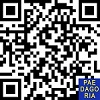ENTREPRENEURSHIP LEARNING BASED ON ETHNOPEDAGOGY: PREPARING STUDENTS OF ISLAMIC BOARDING SCHOOLS TO FACE THE ERA 5.0
Abstract
Abstrak: Pendidikan kewirausahaan telah menjadi topik penelitian yang berkembang sejak tahun 1989. Tujuan penelitian ini adalah untuk mengeksplorasi nilai-nilai yang digunakan sebagai dasar pembelajaran berbasis etnopedagogi. Selain itu, penelitian ini bertujuan untuk mengeksplorasi secara mendalam implementasi pembelajaran berbasis etnopedagogi di pondok pesantren sebagai upaya mempersiapkan santri menghadapi era 5.0. Penelitian kualitatif ini menggunakan metode studi kasus. Teknik pengumpulan data yang digunakan adalah dokumentasi, observasi dan wawancara. Data dalam penelitian ini dianalisis melalui reduksi data, penyajian data dan verifikasi. Hasil penelitian ini adalah 1) perkuliahan kewirausahaan berbasis etnopedagogi untuk mempersiapkan mahasiswa menghadapi era 5.0 dapat dilaksanakan dengan pemberian materi melalui diskusi studi kasus dan dilanjutkan dengan pemberian proyek untuk menyusun rencana bisnis, 2) nilai-nilai kewirausahaan yang dijadikan dasar etnopedagogi dalam perkuliahan kewirausahaan meliputi a) integrasi spiritualisme, b) moralitas, c) perencanaan bisnis, d) keberlanjutan sumber daya ekonomi, e) kreativitas, f) inovasi dan intuisi, g) manajemen, h) informasi dan risiko, i) kerjasama, j) titen, k) gemi, l) pethel, m) ora medit, n) sumeh, o) ora iri. Rencana bisnis terdiri dari identifikasi tujuan bisnis, penentuan sumber daya yang dibutuhkan, prediksi modal, identifikasi target pasar, pengukuran kinerja, identifikasi potensi kesalahan dan risiko, dukungan keputusan dukungan modal, dan pengurangan ketergantungan terhadap faktor eksternal.
Abstract: Entrepreneurship education has become a research topic that has developed since 1989. One of the implementations of entrepreneurship education is through ethnopedagogy-based entrepreneurship learning to foster self-confidence, develop creativity and innovation and dare to take risks for individuals which is implemented in Islamic boarding schools. The aim of this research is to explore the values used as the basis for ethnopedagogy-based learning. Apart from that, this research aims to explore in depth the implementation of ethnopedagogy-based learning in Islamic boarding schools as an effort to prepare students to face the 5.0 era. This qualitative research uses a case study method. The data collection techniques used are documentation, observation and interviews. The data in this research was analyzed through data reduction, data presentation and verification. The results of this research are 1) ethnopedagogy-based entrepreneurship lectures to prepare students to face the 5.0 era can be held by providing material through case study discussions and followed by providing projects to prepare business plans, 2) entrepreneurship values used as a basis for ethnopedagogy in entrepreneurship lectures include a) spiritualism integration, b) morality, c) business planning, d) economic resources sustainability, e) creativity, f) innovation and intuition, g) management, h ) informations and risks, i) cooperation, j) titen, k) gemi, l) pethel, m) ora medit, n) sumeh, o) ora iri. A business plan consists of identifying business objectives, determining required resources, capital prediction, target market identification, performance measurement, identification of potential errors and risks, capital support decision support, and reducing dependence on external factors.
Keywords
Full Text:
PDFReferences
Abdullah, R. (2020). Importance And Contents Of Business Plan: A Case-Based Approach. Jurnal Manajemen Indonesia, 20(2), 164. https://doi.org/10.25124/jmi.v20i2.3204
Ademola, O., Kimanzi, M. K., & Modise, A. (2023). Investigating the Pedagogical Potential of Entrepreneurial Projects in Higher Education. Journal of Educational and Social Research, 13(3), 273–283. https://doi.org/10.36941/jesr-2023-0076
Ainash, A., Yelena, B., Nazgul, K., Albina, A., & Galina, D. (2022). Formation of ethno-pedagogical competence of the future teacher in the aspect of modernization of public consciousness. Cypriot Journal of Educational Sciences, 17(9), 2978–2989. https://doi.org/10.18844/cjes.v17i9.8030
Alditia, L. M., & Nurmawanti, I. (2023). Ethnopedagogical Content in the Traditional Art of Sasak Ethnic Group: Gendang Beleq. Didaktika : Jurnal Kependidikan, 17(1), 1–15. https://doi.org/10.30863/didaktika.v17i1.4533
Ali, O., Osmanaj, V., Alryalat, M., Chimhundu, R., & Dwivedi, Y. K. (2023). The impact of technological innovation on marketing: individuals, organizations and environment: a systematic review. Economic Research-Ekonomska Istrazivanja , 36(3). https://doi.org/10.1080/1331677X.2023.2210661
Alkanat, H. Ö., & Arslan, S. (2024). Long‐term smell loss experiences after COVID‐19 A qualitative study. Health Expectations, 27(1), 1–9. https://doi.org/https://doi.org/10.1111/hex.14018
Apdillah, D., Panjaitan, K., Stefanny, N. T. P., & Surbakti, F. A. (2022). the Global Competition in the Digital Society 5.0 Era: the Challenges of the Younger Generation. Journal of Humanities, Social Sciences and Business (Jhssb), 1(3), 75–80. https://doi.org/10.55047/jhssb.v1i3.151
Azhar, I. A. (2023). Peran Pesantren Anwarul Huda Malang Dalam Pembentukan Jiwa Kewirausahaan Pada Santri. Jurnal Ekonomi Syariah Darussalam, 4(1), 2745–8407.
Baa, R. (2022). A study on the contribution that a business plan makes to the expansion of a small company. International Journal of Professional Business Review, 7(5), 1–15. https://doi.org/https://doi.org/10.26668/businessreview/2022.v7i5.e585
Badruzaman, D. (2019). Improving the Quality of Islamic Boarding School Graduates Through Islamic Agropreneur School Efforts to Reduce Unemployment in Indonesia. Muslim Heritage, 4(2). https://doi.org/10.21154/muslimheritage.v4i2.1754
Caliendo, M., & Rodríguez, D. (2023). Divergent thinking and post-launch entrepreneurial outcomes: non-linearities and the moderating role of experience. Small Business Economics, 62(1), 1523–1553. https://doi.org/10.1007/s11187-023-00828-5
Esat, G., Pasha-Zaidi, N., Rizvi, S., Parker, J. S., & Smith, B. H. (2024). Integration of Religion and Spirituality Into Culturally Responsible School Psychology Practice. School Psychology Review, 1–16. https://doi.org/https://doi.org/10.1080/2372966X.2024.2317699
Freeman, S., Marston, H. R., Olynick, J., Musselwhite, C., Kulczycki, C., Genoe, R., & Xiong, B. (2020). Intergenerational effects on the impacts of technology use in later life: Insights from an international, multi‐site study. International Journal of Environmental Research and Public Health, 17(16), 1–14. https://doi.org/10.3390/ijerph17165711
Fu, X., Avenyo, E., & Ghauri, P. (2021). Digital platforms and development: a survey of the literature. Innovation and Development, 11(2–3), 303–321. https://doi.org/10.1080/2157930X.2021.1975361
Haddar, G. Al, & Tahir, M. (2023). Does Entrepreneurship Education and Technopreneurship Literacy among Students Contribute to Entrepreneurial Interest through Self Efficacy ? Journal of Entrepreneurship Review, 1(3), 134–146.
Haddock, A., Ward, N., Yu, R., & O’Dea, N. (2022). Positive Effects of Digital Technology Use by Adolescents: A Scoping Review of the Literature. International Journal of Environmental Research and Public Health, 19(21), 1–17. https://doi.org/10.3390/ijerph192114009
Ilfiandra, & Saripudin, M. (2023). Ethnopedagogy: Exploring Peaceful Traditions of Indonesia’s Sundanese Indigenous Communities. Educating for Peace through Countering Violence: Strategies in Curriculum and Instruction, 114–134. https://doi.org/10.4324/9781003383468-9
Jannah, N. M., Lestari, K., Jhonathan, G., Pinilih, M. S., Nurhayati, A., & Margana, M. (2023). Family role in preserving Javanese culture, values, and language: The challenges in the globalization 4.0 era. Jurnal Penelitian Humaniora, 1(1), 11–23. https://doi.org/10.21831/hum.v1i1.59144
Jovanović, D., Nikolić, M., & Đaković, R. (2010). Strategy, entrepreneurship, management, and leadership. Research Journal of Agricultural Science, 42(3), 636–642.
Kaptein, M. (2019). The Moral Entrepreneur: A New Component of Ethical Leadership. Journal of Business Ethics, 156(4), 1135–1150. https://doi.org/10.1007/s10551-017-3641-0
Lachvajderová, L., & Kádárová, J. (2022). Industry 4.0 Implementation and Industry 5.0 Readiness in Industrial Enterprises. Management and Production Engineering Review, 13(3), 102–109. https://doi.org/10.24425/mper.2022.142387
Landowska, A. M., Piana, B. Della, & Feola, R. (2020). Humane Entrepreneurship Model: Does morality of entrepreneurs matter? Journal of the International Council for Small Business, 1(3), 177–198. https://doi.org/https://doi.org/10.1080/26437015.2020.1850156
Malinda, M., Kristine, F., Ida, I., Gunawan, I., Magdalena, N., Peter, P., Widiastuti, R., Suwarno, H. L., & MARGARETHA, Y. (2024). The Effectiveness of Learning Methods to Improve Entrepreneurial Skills, Spirit, Entrepreneurship Intensity. Quality - Access to Success, 25(198), 333–341. https://doi.org/10.47750/QAS/25.198.35
Nováková, K. S., Sirotová, M., Urban, M., & Baghana, J. (2021). Using the elements of traditional culture in the teaching process from the perspectiveof ethnopedagogy and ethnology. Journal of Education Culture and Society, 12(2), 495–504. https://doi.org/10.15503/jecs2021.2.495.504
Oktavianti, I., & Ratnasari, Y. (2018). Etnopedagogi dalam pembelajaran di sekolah dasar melalui media berbasis kearifan lokal. JOALL (Journal of Applied Linguistics & Literature), 3(1), 116–128. https://doi.org/10.33369/joall.v3i1.6538
Ozkan, M., & Solmaz, B. (2015). The Changing Face of the Employees – Generation Z and Their Perceptions of Work (A Study Applied to University Students). Procedia Economics and Finance, 26(15), 476–483. https://doi.org/10.1016/s2212-5671(15)00876-x
Pascucci, F., Savelli, E., & Gistri, G. (2023). How digital technologies reshape marketing: evidence from a qualitative investigation. Italian Journal of Marketing, 27–58. https://doi.org/10.1007/s43039-023-00063-6
Prelipcean, G., & Ungureanu, A. (2023). Entrepreneurship in Emerging Economies: The Role of Innovation and Institutions. In M. Mohiuddin, M. N. H. Reza, E. Hosseini, & S. Ed-Dafali (Eds.), Entrepreneurship. IntechOpen. https://doi.org/10.5772/intechopen.109893
Putro, A. K., & Takahashi, Y. (2024). Entrepreneurs’ creativity, information technology adoption, and continuance intention: Mediation effects of perceived usefulness and ease of use and the moderation effect of entrepreneurial orientation. Heliyon, 10(3), 1–14. https://doi.org/10.1016/j.heliyon.2024.e25479
Rahmawati, Y., Ridwan, A., Cahyana, U., & Wuryaningsih, T. (2020). The integration of ethnopedagogy in science learning to improve student engagement and cultural awareness. Universal Journal of Educational Research, 8(2), 662–671. https://doi.org/10.13189/ujer.2020.080239
Rashid, S., & Ratten, V. (2022). Spirituality and entrepreneurship: integration of spiritual beliefs in an entrepreneurial journey. Journal of Enterprising Communities, 16(6), 876–899. https://doi.org/10.1108/JEC-12-2020-0199
Rodrigues Do Amaral, F., Gratiot, N., Pellarin, T., & Tu, T. A. (2023). Assessing typhoon-induced compound flood drivers: a case study in Ho Chi Minh City, Vietnam. Natural Hazards and Earth System Sciences, 23(11), 3379–3405.
Romero-Infante, J. A., Ramírez, M. S. R., Luna, L. A., Leguizamon, S., & Verjel, E. (2022). Green economy metrics as a promoter of sustainable development in universities. Case study: El Bosque University. Journal of Sustainability Perspectives, 2(Iwgm 2021), 439–448. https://doi.org/10.14710/jsp.2022.15546
Saragih, R. (2017). Membangun usaha kreatif, inovatif, dan bermanfaat melalui penerapan kewirausahaan sosial. Jurnal Kewiraushaan, 3(2), 50–58.
Sumiati, D. (2017). Intercultural Communication Based on Local Wisdom That Made the People of Bali Reject Sharia Tourism. Asian Journal of Media and Communication, 1(2), 137–146. https://doi.org/10.20885/asjmc.vol1.iss2.art4
Susanto, D., Risnita, & Jailani, M. S. (2023). Data Validity Checking Techniques in Scientific Research. Jurnal QOSIM : Jurnal Pendidikan, Sosial & Humaniora, 1(1), 53–61. https://doi.org/10.61104/jq.v1i1.60
Wardani, R. P., Fitriyah, C. Z., & Rofiq, A. (2024). Ethnopaedagogics as an approach in primary education. JURNAL PENDIDIKAN EKONOMI: Jurnal Ilmiah Ilmu Pendidikan, Ilmu Ekonomi Dan Ilmu Sosial, 18(1), 183–190. https://doi.org/10.19184/jpe.v18i1.47076
Wuisang, J. R. R. (2020). The Implication of Traditional Value and Japanese Culture in Global Competition Era. Journal of International Conference Proceedings, 3(2), 194–210. https://doi.org/10.32535/jicp.v0i0.920
Yasa, A., Rafi, M., Rahmanto, F., & Setiawan, D. (2021). Strengthening Bureaucratic Reform Towards Society 5 . 0 Era in Indonesia. Ilmu Pemerintahan, 20(01), 27–42.
Abdullah, R. (2020). Importance And Contents Of Business Plan: A Case-Based Approach. Jurnal Manajemen Indonesia, 20(2), 164. https://doi.org/10.25124/jmi.v20i2.3204
Ademola, O., Kimanzi, M. K., & Modise, A. (2023). Investigating the Pedagogical Potential of Entrepreneurial Projects in Higher Education. Journal of Educational and Social Research, 13(3), 273–283. https://doi.org/10.36941/jesr-2023-0076
Ainash, A., Yelena, B., Nazgul, K., Albina, A., & Galina, D. (2022). Formation of ethno-pedagogical competence of the future teacher in the aspect of modernization of public consciousness. Cypriot Journal of Educational Sciences, 17(9), 2978–2989. https://doi.org/10.18844/cjes.v17i9.8030
Alditia, L. M., & Nurmawanti, I. (2023). Ethnopedagogical Content in the Traditional Art of Sasak Ethnic Group: Gendang Beleq. Didaktika : Jurnal Kependidikan, 17(1), 1–15. https://doi.org/10.30863/didaktika.v17i1.4533
Ali, O., Osmanaj, V., Alryalat, M., Chimhundu, R., & Dwivedi, Y. K. (2023). The impact of technological innovation on marketing: individuals, organizations and environment: a systematic review. Economic Research-Ekonomska Istrazivanja , 36(3). https://doi.org/10.1080/1331677X.2023.2210661
Alkanat, H. Ö., & Arslan, S. (2024). Long‐term smell loss experiences after COVID‐19 A qualitative study. Health Expectations, 27(1), 1–9. https://doi.org/https://doi.org/10.1111/hex.14018
Apdillah, D., Panjaitan, K., Stefanny, N. T. P., & Surbakti, F. A. (2022). the Global Competition in the Digital Society 5.0 Era: the Challenges of the Younger Generation. Journal of Humanities, Social Sciences and Business (Jhssb), 1(3), 75–80. https://doi.org/10.55047/jhssb.v1i3.151
Azhar, I. A. (2023). Peran Pesantren Anwarul Huda Malang Dalam Pembentukan Jiwa Kewirausahaan Pada Santri. Jurnal Ekonomi Syariah Darussalam, 4(1), 2745–8407.
Baa, R. (2022). A study on the contribution that a business plan makes to the expansion of a small company. International Journal of Professional Business Review, 7(5), 1–15. https://doi.org/https://doi.org/10.26668/businessreview/2022.v7i5.e585
Badruzaman, D. (2019). Meningkatkan Kualitas Lulusan Pondok Pesantren Melalui Islamic Agropreneur School Upaya Mengurangi Pengangguran Di Indonesia. Muslim Heritage, 4(2). https://doi.org/10.21154/muslimheritage.v4i2.1754
Caliendo, M., & Rodríguez, D. (2023). Divergent thinking and post-launch entrepreneurial outcomes: non-linearities and the moderating role of experience. Small Business Economics, 62(1), 1523–1553. https://doi.org/10.1007/s11187-023-00828-5
Esat, G., Pasha-Zaidi, N., Rizvi, S., Parker, J. S., & Smith, B. H. (2024). Integration of Religion and Spirituality Into Culturally Responsible School Psychology Practice. School Psychology Review, 1–16. https://doi.org/https://doi.org/10.1080/2372966X.2024.2317699
Freeman, S., Marston, H. R., Olynick, J., Musselwhite, C., Kulczycki, C., Genoe, R., & Xiong, B. (2020). Intergenerational effects on the impacts of technology use in later life: Insights from an international, multi‐site study. International Journal of Environmental Research and Public Health, 17(16), 1–14. https://doi.org/10.3390/ijerph17165711
Fu, X., Avenyo, E., & Ghauri, P. (2021). Digital platforms and development: a survey of the literature. Innovation and Development, 11(2–3), 303–321. https://doi.org/10.1080/2157930X.2021.1975361
Haddar, G. Al, & Tahir, M. (2023). Does Entrepreneurship Education and Technopreneurship Literacy among Students Contribute to Entrepreneurial Interest through Self Efficacy ? Journal of Entrepreneurship Review, 1(3), 134–146.
Haddock, A., Ward, N., Yu, R., & O’Dea, N. (2022). Positive Effects of Digital Technology Use by Adolescents: A Scoping Review of the Literature. International Journal of Environmental Research and Public Health, 19(21), 1–17. https://doi.org/10.3390/ijerph192114009
Ilfiandra, & Saripudin, M. (2023). Ethnopedagogy: Exploring Peaceful Traditions of Indonesia’s Sundanese Indigenous Communities. Educating for Peace through Countering Violence: Strategies in Curriculum and Instruction, 114–134. https://doi.org/10.4324/9781003383468-9
Jannah, N. M., Lestari, K., Jhonathan, G., Pinilih, M. S., Nurhayati, A., & Margana, M. (2023). Family role in preserving Javanese culture, values, and language: The challenges in the globalization 4.0 era. Jurnal Penelitian Humaniora, 1(1), 11–23. https://doi.org/10.21831/hum.v1i1.59144
Jovanović, D., Nikolić, M., & Đaković, R. (2010). Strategy, entrepreneurship, management, and leadership. Research Journal of Agricultural Science, 42(3), 636–642.
Kaptein, M. (2019). The Moral Entrepreneur: A New Component of Ethical Leadership. Journal of Business Ethics, 156(4), 1135–1150. https://doi.org/10.1007/s10551-017-3641-0
Lachvajderová, L., & Kádárová, J. (2022). Industry 4.0 Implementation and Industry 5.0 Readiness in Industrial Enterprises. Management and Production Engineering Review, 13(3), 102–109. https://doi.org/10.24425/mper.2022.142387
Landowska, A. M., Piana, B. Della, & Feola, R. (2020). Humane Entrepreneurship Model: Does morality of entrepreneurs matter? Journal of the International Council for Small Business, 1(3), 177–198. https://doi.org/https://doi.org/10.1080/26437015.2020.1850156
Malinda, M., Kristine, F., Ida, I., Gunawan, I., Magdalena, N., Peter, P., Widiastuti, R., Suwarno, H. L., & MARGARETHA, Y. (2024). The Effectiveness of Learning Methods to Improve Entrepreneurial Skills, Spirit, Entrepreneurship Intensity. Quality - Access to Success, 25(198), 333–341. https://doi.org/10.47750/QAS/25.198.35
Nováková, K. S., Sirotová, M., Urban, M., & Baghana, J. (2021). Using the elements of traditional culture in the teaching process from the perspectiveof ethnopedagogy and ethnology. Journal of Education Culture and Society, 12(2), 495–504. https://doi.org/10.15503/jecs2021.2.495.504
Oktavianti, I., & Ratnasari, Y. (2018). Etnopedagogi dalam pembelajaran di sekolah dasar melalui media berbasis kearifan lokal. JOALL (Journal of Applied Linguistics & Literature), 3(1), 116–128. https://doi.org/10.33369/joall.v3i1.6538
Ozkan, M., & Solmaz, B. (2015). The Changing Face of the Employees – Generation Z and Their Perceptions of Work (A Study Applied to University Students). Procedia Economics and Finance, 26(15), 476–483. https://doi.org/10.1016/s2212-5671(15)00876-x
Pascucci, F., Savelli, E., & Gistri, G. (2023). How digital technologies reshape marketing: evidence from a qualitative investigation. Italian Journal of Marketing, 27–58. https://doi.org/10.1007/s43039-023-00063-6
Prelipcean, G., & Ungureanu, A. (2023). Entrepreneurship in Emerging Economies: The Role of Innovation and Institutions. In M. Mohiuddin, M. N. H. Reza, E. Hosseini, & S. Ed-Dafali (Eds.), Entrepreneurship. IntechOpen. https://doi.org/10.5772/intechopen.109893
Putro, A. K., & Takahashi, Y. (2024). Entrepreneurs’ creativity, information technology adoption, and continuance intention: Mediation effects of perceived usefulness and ease of use and the moderation effect of entrepreneurial orientation. Heliyon, 10(3), 1–14. https://doi.org/10.1016/j.heliyon.2024.e25479
Rahmawati, Y., Ridwan, A., Cahyana, U., & Wuryaningsih, T. (2020). The integration of ethnopedagogy in science learning to improve student engagement and cultural awareness. Universal Journal of Educational Research, 8(2), 662–671. https://doi.org/10.13189/ujer.2020.080239
Rashid, S., & Ratten, V. (2022). Spirituality and entrepreneurship: integration of spiritual beliefs in an entrepreneurial journey. Journal of Enterprising Communities, 16(6), 876–899. https://doi.org/10.1108/JEC-12-2020-0199
Rodrigues Do Amaral, F., Gratiot, N., Pellarin, T., & Tu, T. A. (2023). Assessing typhoon-induced compound flood drivers: a case study in Ho Chi Minh City, Vietnam. Natural Hazards and Earth System Sciences, 23(11), 3379–3405.
Romero-Infante, J. A., Ramírez, M. S. R., Luna, L. A., Leguizamon, S., & Verjel, E. (2022). Green economy metrics as a promoter of sustainable development in universities. Case study: El Bosque University. Journal of Sustainability Perspectives, 2(Iwgm 2021), 439–448. https://doi.org/10.14710/jsp.2022.15546
Saragih, R. (2017). Building creative, innovative, and beneficial enterprises through the application of social entrepreneurship. Jurnal Kewiraushaan, 3(2), 50–58.
Sumiati, D. (2017). Intercultural Communication Based on Local Wisdom That Made the People of Bali Reject Sharia Tourism. Asian Journal of Media and Communication, 1(2), 137–146. https://doi.org/10.20885/asjmc.vol1.iss2.art4
Susanto, D., Risnita, & Jailani, M. S. (2023). Data Validity Checking Techniques in Scientific Research. Jurnal QOSIM : Jurnal Pendidikan, Sosial & Humaniora, 1(1), 53–61. https://doi.org/10.61104/jq.v1i1.60
Wardani, R. P., Fitriyah, C. Z., & Rofiq, A. (2024). Ethnopedagogics as an approach in primary education. JURNAL PENDIDIKAN EKONOMI: Jurnal Ilmiah Ilmu Pendidikan, Ilmu Ekonomi Dan Ilmu Sosial, 18(1), 183–190. https://doi.org/10.19184/jpe.v18i1.47076
Wuisang, J. R. R. (2020). The Implication of Traditional Value and Japanese Culture in Global Competition Era. Journal of International Conference Proceedings, 3(2), 194–210. https://doi.org/10.32535/jicp.v0i0.920
Yasa, A., Rafi, M., Rahmanto, F., & Setiawan, D. (2021). Strengthening Bureaucratic Reform Towards Society 5 . 0 Era in Indonesia. Ilmu Pemerintahan, 20(01), 27–42.
DOI: https://doi.org/10.31764/paedagoria.v16i1.27231
Refbacks
- There are currently no refbacks.
Copyright (c) 2025 Thorida Nur Asih, M. Zainudin, Rahmatika Dewi

This work is licensed under a Creative Commons Attribution-ShareAlike 4.0 International License.
Paedagoria : Jurnal Kajian, Penelitian dan Pengembangan Kependidikan
Fakultas Keguruan & Ilmu Pendidikan | Universitas Muhammadiyah Mataram.
_______________________________________________
 | Paedagoria : Jurnal Kajian, Penelitian dan Pengembangan Kependidikan |
______________________________________________
CURRENT INDEXING:
EDITORIAL OFFICE:


















